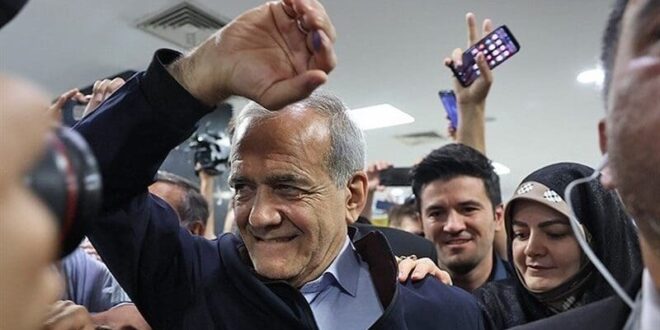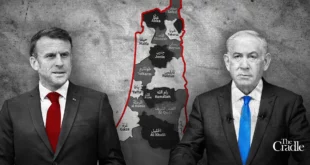Elections in Iran are neither free nor fair, but they can still surprise. The election of reformist veteran lawmaker Masud Pezeshkian as Iran’s new president is one of those surprises.
Pezeshkian beat his ultraconservative rival Saeed Jalili in a runoff vote on July 5, winning more than 16.3 million votes in an election that saw a 49.8 percent turnout.
“Pezeshkian’s victory was a total surprise; he was really the unexpected candidate to come through this election,” said Sanam Vakil, director of the Middle East and North Africa program at the London-based Chatham House.
She said the political establishment, and even many in society, anticipated conservative parliament speaker Mohammad Baqer Qalibaf’s victory, but he did not even make it to the second round of voting.
The sentiment is shared among some in Pezeshkian’s camp. Mohammad Mohammad-Rezaei, a former lawmaker who campaigned for Pezeshkian in Kurdistan Province, said the former health minister did not even expect to be allowed to run in the election.
“I think [the authorities] wanted to engineer the election, and so they put a reformist on the ballot, as they did with [Abdolnasser] Hemmati [in 2021] to make it seem competitive,” he told RFE/RL’s Radio Farda. “But they lost control and someone like Pezeshkian won.”
The first round of voting on June 28 saw a record-low turnout of 39.9 percent, in which Pezeshkian benefited from a split conservative vote to finish first, since Jalili and Qalibaf could not reach an agreement for one of them to drop out of the race.
Going into the second round, Pezeshkian sought to rally voters to his cause by playing on people’s fears of a hard-line candidate like Jalili winning the election. While that may have helped him win votes, analysts say it is not the only reason why people voted for him.
Farzan Sabet, a senior research associate at the Geneva Graduate Institute, described Pezeshkian as a “conservative reformist” who “did not make bold promises of changes and reforms” and so managed to draw on votes from traditional conservatives who do not back Jalili’s hard-line views.
No Major Policy Shifts
Pezeshkian is inheriting an economy hammered by mismanagement and sanctions and a society that has shown it will take to the streets to demand basic freedoms.
But consequential policies in Iran are set by Supreme Leader Ayatollah Ali Khamenei, who has the final say on all state matters.
The president serves as the head of the Supreme National Security Council, but he ultimately only has one vote. So, while the president has a say, he does not have a lot of sway.
“Pezeshkian has given the impression that he will be a weak or pliable president, or at the very least he will adhere very strictly to the policy framework set by the supreme leader,” Sabet said.
Pezeshkian himself acknowledged the limits of presidential power throughout his campaign, noted Vakil, who described the president-elect as a “reformist loyalist who is, above all else, subservient to the supreme leader.”
She argued that being “compliant and pliant” could work in Pezeshkian’s favor, potentially affording him “some latitude to pursue openness with the West or engage on incremental issues” — assuming Iran’s top brass wants to lift sanctions and boost the faltering economy.
Pezeshkian is unlikely to bring major reforms, but he might be able to exert some influence on policies thanks to his more conservative leanings compared to other reformists, said Sabet.
He speculated that Pezeshkian’s government might include reformists and moderates but also traditional conservatives, giving him some leverage to work with conservatives in parliament to “outmaneuver” hard-liners, who saw their numbers increase in the legislature following the election in March.
So, while there will not be major policy shifts, how existing policies are carried out could have a “meaningful impact” on domestic politics, foreign relations, and the economy.
Succession To Khamenei
One reason why Qalibaf was initially seen as the establishment’s preferred choice was because his executive experience, ties to the Islamic Revolutionary Guards Corps, and conservative views made him an ideal candidate to maintain order and ensure a smooth transition of power in the event of Khamenei’s death.
Pezeshkian is a former health minister with years of experience in parliament, but the jury is out on whether he will be able to steady the boat if the 85-year-old supreme leader dies during his tenure.
“Pezeshkian was truly a second-tier reformist candidate,” Sabet said, but added, “That being said, he could grow into the role, despite not having held particularly senior positions in the past.”
 Eurasia Press & News
Eurasia Press & News



